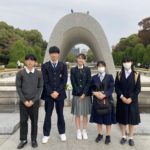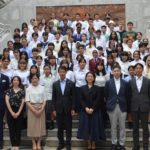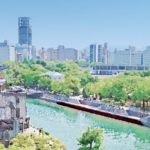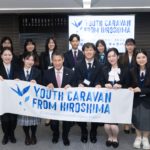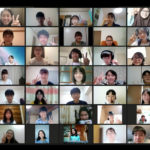Hiroshima Prefecture’s SDGs Business Community Interview with Participants
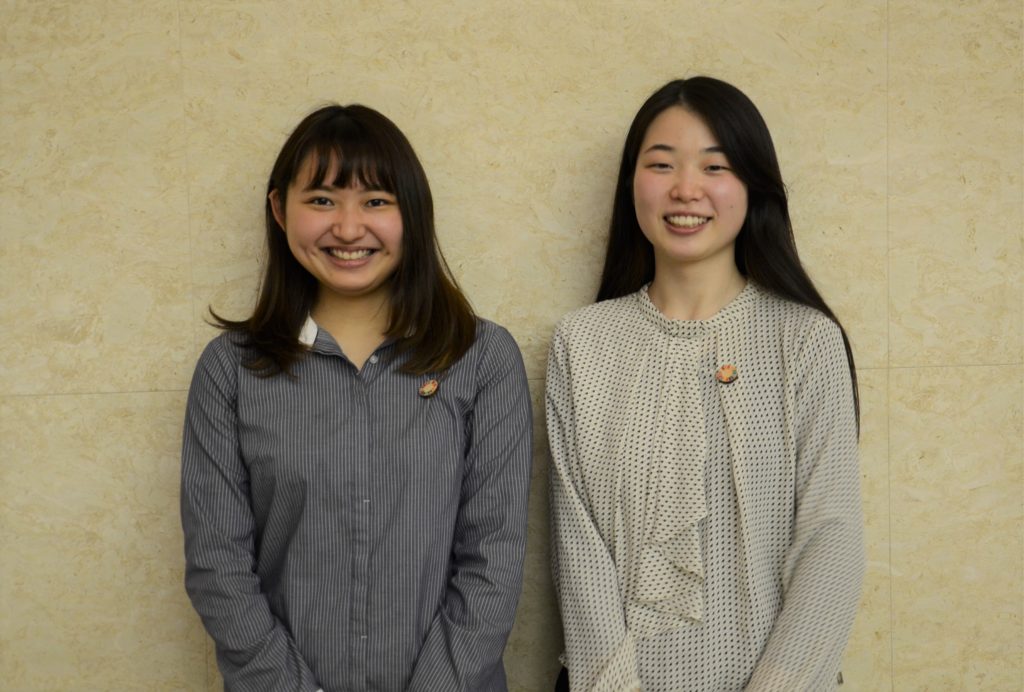
Since FY2018, Hiroshima Prefecture has been implementing a project aimed at raising awareness of the SDGs and the development of talents among the younger generation tasked with bringing us into the future. Under this project, university students in Hiroshima Prefecture play the role of reporters who cover companies and NPOs that are engaged in SDGs-related business initiatives. Their goal is to create articles featuring these companies and organizations and share them with others in the form of a booklet or website. This year is the fourth year of this project, with 16 participating students featuring 33 different companies and organizations. We sat down with Ogi Nozomi (right in photo) and Yokoyama Mizuki (left in photo), who are among the university student reporters participating in this year’s project, to ask them about their thoughts.
■How did you get involved in this project?
Ogi: I had learned about the SDGs in high school when the subject of environmental issues was covered in class. I really love nature, partly because my own name has the characters for “tree” and “sea” in it, so I was shocked to discover how badly the environment has been polluted. I was angry at how our pursuit of human profit has resulted in environmental degradation and the garbage problem, and other ecosystems are also suffering because of our actions. Thinking about that makes me feel like I’m on the verge of tears. I found out about this project when I became a university student and was looking for something I could do to help. I decided to take part in the project as I wanted to exchange views with people my age and older and hear what everyone really has to say.
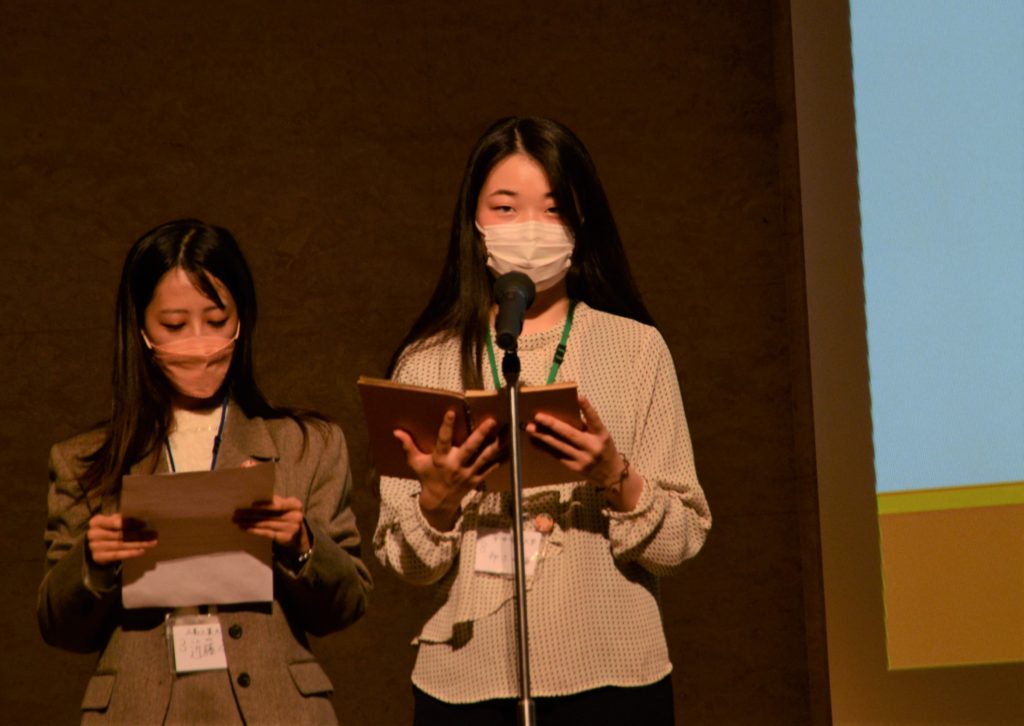
↑ Ogi presenting the findings from her interviews at the Hiroshima SDGs Forum
Yokoyama: I didn’t know anything about the SDGs at first, but in one of my university classes, we had a discussion on the economics of how we can protect public resources. The idea was that no one will be truly happy in the end if we consume public resources in a manner that solely prioritizes profits. The topic of SDGs emerged in the context of how we can break out of this situation, and our professor urged us to take part in this project.
■What were some memorable moments from your interviews?
Ogi: I conducted many interviews with media companies such as RCC Broadcasting, Hiroshima Telecasting, and Hiroshima Home Television. What struck me was how difficult it is for someone responsible for disseminating information to choose the kind of information to share. I was also very interested in the garbage problem, so I contacted Koyo Industry (a waste collection and recycling company) in my personal capacity for an interview on top of my group activities. When I visited the site, I noticed that the garbage in many bags had not been properly separated according to the waste classification guidelines, and there were even batteries and knives. Seeing a situation like this reminded me again of the responsibility we have as consumers.
Yokoyama: My group was tasked with interviewing four companies in completely different business sectors: Kanemoto Shokai, Sinwa Kinzoku, Terada Iron Works, and SMBC Consumer Finance. What I noticed was that all these companies have gotten involved in the SDGs in ways that suit their respective technologies and expertise. This made me realize that the secret to lasting success might be to tailor what we are capable of doing to specific goals of the SDGs instead of forcibly fitting ourselves to the SDGs.
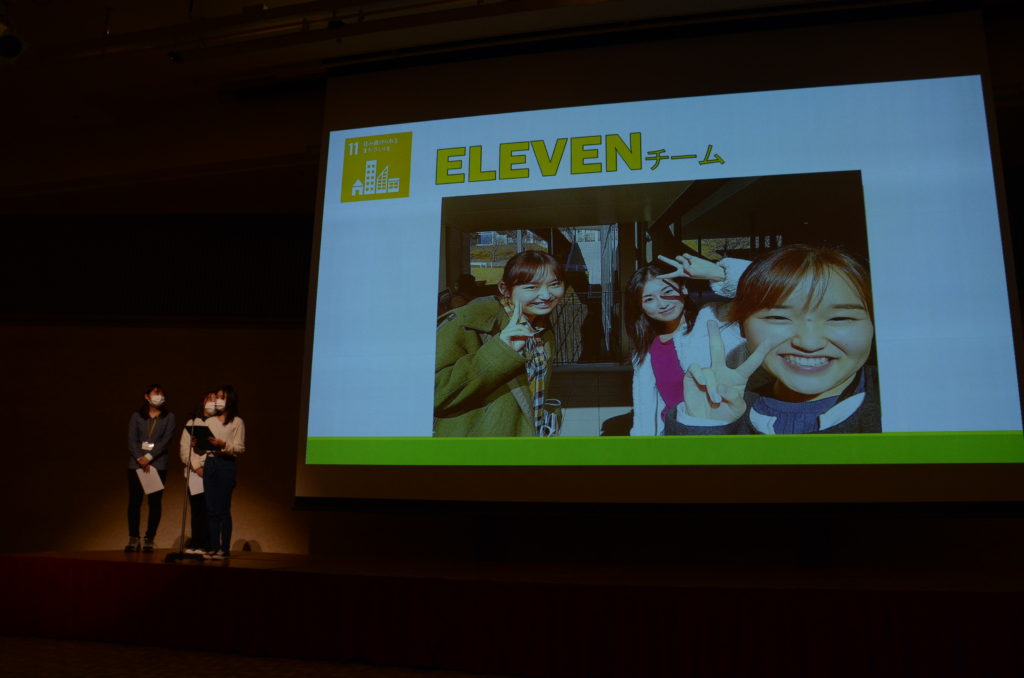
↑Yokoyama conducted interviews as part of the team “ELEVEN.”
■What do you hope to work on moving forward?
Ogi: I had been involved in the SDGs on my own previously, but after taking part in this project, more of my friends have also become interested and are asking me questions like, “What are the SDGs?” “Aren’t those the colors of the SDGs?” After listening to what many people have to say, I have realized that we cannot achieve the SDGs individually, so I’m glad to know that my activities have had a positive impact on those around me. It’s a bit awkward to keep asking my university friends if they are interested in the SDGs, so in the future, I will spread the word by saying, “Look, those are the SDGs!” (laughs)
Yokoyama: Being part of this project has broadened my perspectives on the SDGs. In the past, I was under the impression that the SDGs were just a part of corporate activities, but I have learned that the SDGs are also about how people work closely together and the positive knock-on effect achieving one goal has on other goals. I now think that we can all come together and collaborate because of this massive goal of the SDGs. Since I am a university student who can get actively involved, I would like to create social circles and make use of social media to raise awareness.
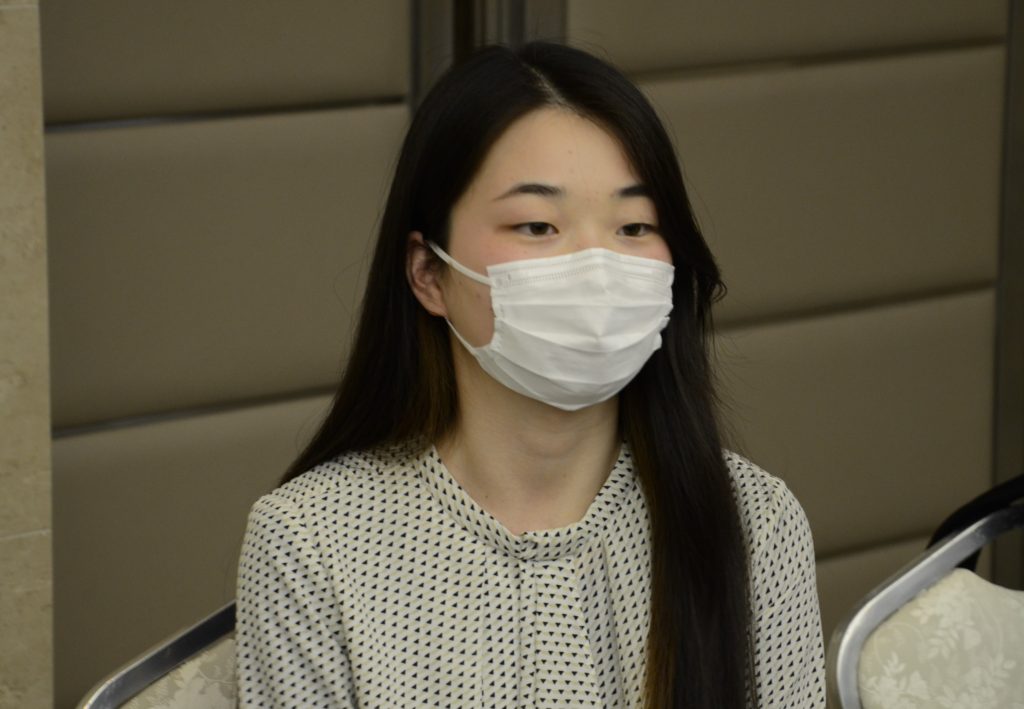
Ogi Nozomi is a first-year student at the Department of Public Management, Faculty of Current Business, Yasuda Women’s University. She was a member of the “Chinoppi” group, which sought to address the problem of younger people distancing themselves from television.
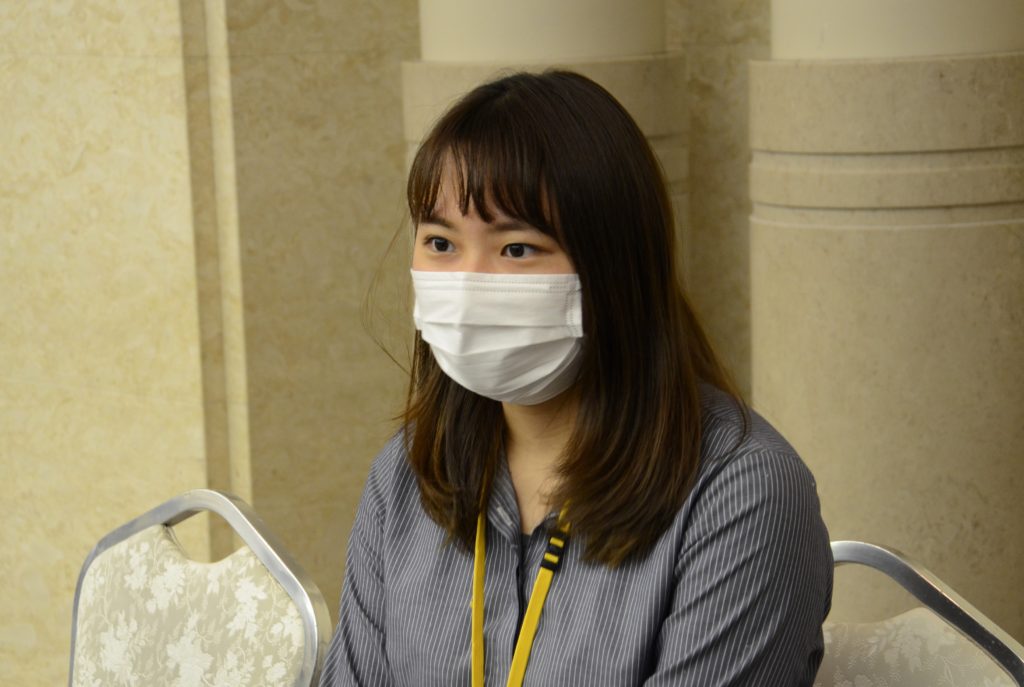
Yokoyama Mizuki is a second-year student at the Department of Business Psychology, Faculty of Psychology, Yasuda Women’s University. Her hobby is scuba diving. Marine debris in the ocean is one of the reasons why she has become interested in environmental issues.
Tags associated with this article



